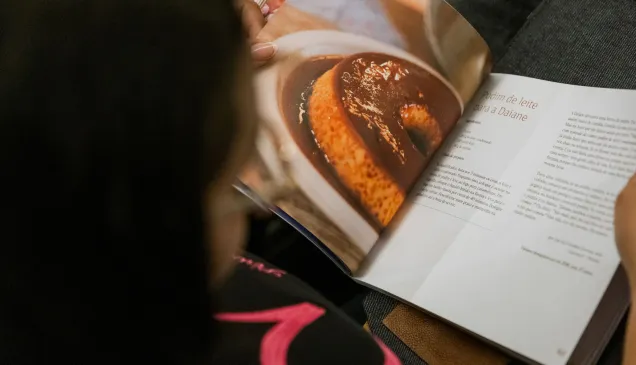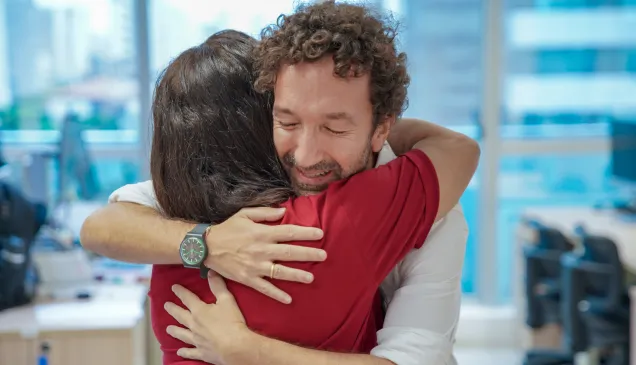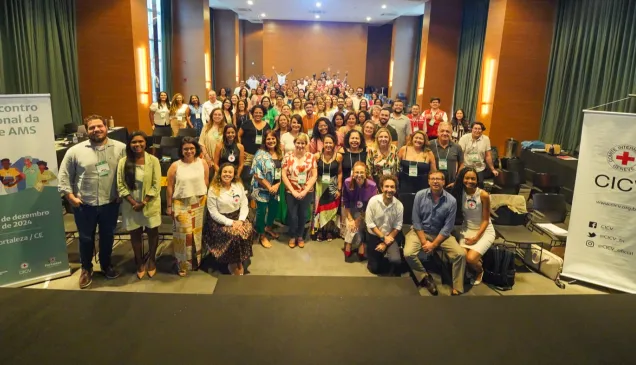Brazil: Meeting discusses protection challenges amid armed violence in north-east
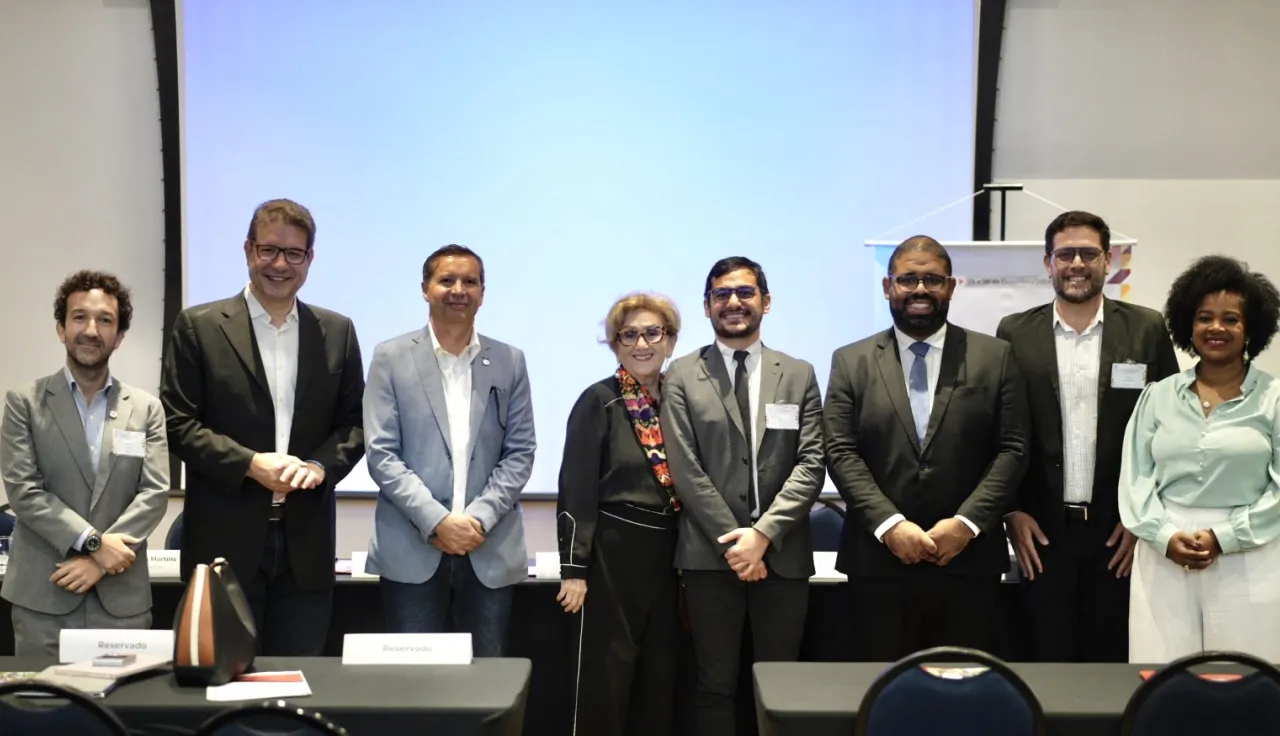
Fortaleza (Ceará state) – The Gabinete de Assessoria Jurídica às Organizações Populares (GAJOP, People’s Organizations Legal Advisory Office) held a second Meeting on Provisional Protection Programmes (PPPro) in Fortaleza on 5 and 6 December 2024, with the support of the ICRC. The theme was “Protection challenges in the context of armed violence in the north-east region” and the event brought together over 50 participants, including personnel from the federal government, from the governments of Ceará, Bahía and Pernambuco states and from provisional protection programmes in six Brazilian states.
Discussions focused on the humanitarian consequences of the armed violence, such as killings, forced displacement, disappearances, excessive use of public force, effects on mental health and restrictions on access to essential public services.
The PPPros are a pioneering initiative launched by Ceará state, consisting of temporary measures on the part of government bodies aimed at ensuring the safety of people in situations of immediate danger.
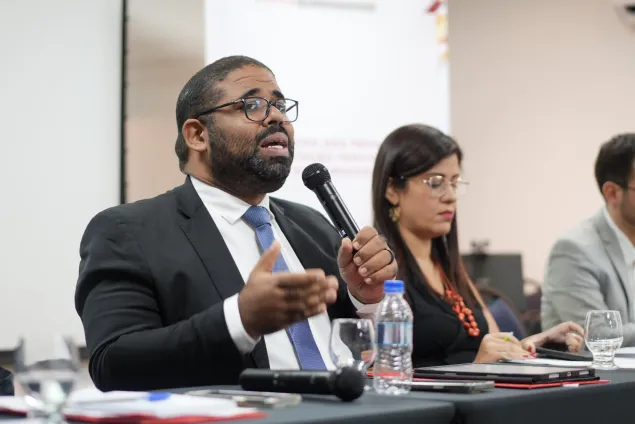
Felipe Freitas, Secretary of Justice and Human Rights of the state of Bahia.
The director of Human Rights Defence at the Ministry of Human Rights and Citizenship, Felipe Biasoli, said that the agency had worked hard to meet expectations and increase its budget. He also announced that a National Plan for the Protection of Human Rights Defenders and a Preliminary Draft Law were to be presented.
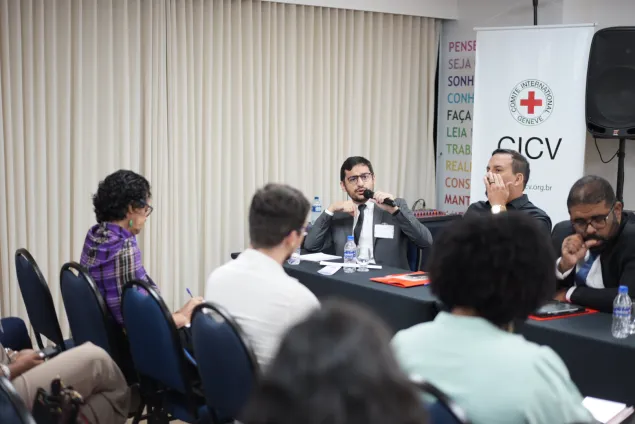
Felipe Biasoli, during his participation on the first day of the event.
The director of Human Rights Defence at the Ministry of Human Rights and Citizenship, Felipe Biasoli, said that the agency had worked hard to meet expectations and increase its budget. He also announced that a National Plan for the Protection of Human Rights Defenders and a Preliminary Draft Law were to be presented.
The Ministry of Human Rights and Citizenship was running three protection programmes that operated in collaboration with the states, through the signing of agreements or, in states where there was no agreement in place, through the federal team. These were PROVITA – the Programme for the Protection of Threatened Victims and Witnesses, PPDDH – the Programme for the Protection of Human Rights Defenders, Communicators and Environmentalists and PPCAAM – the Programme for the Protection of Children and Adolescents Threatened with Death.
Partnership
The Secretary for Human Rights of the state of Ceará, Socorro França, underlined the importance of partnership with the ICRC and of its role in the state. “We have an idea of how to live and survive because of the protection programmes. We've come a long way thanks to the ICRC, not only in protecting victims of violence, but also as regards missing persons.” She also spoke of the efforts undertaken by the government of Ceará state, which had allocated R$ 24 million (over €3.7 million) to the state Provisional Protection Programme (PPPro/CE). “We need a national PPPro. That’s the only way to implement this public policy,” she stated.
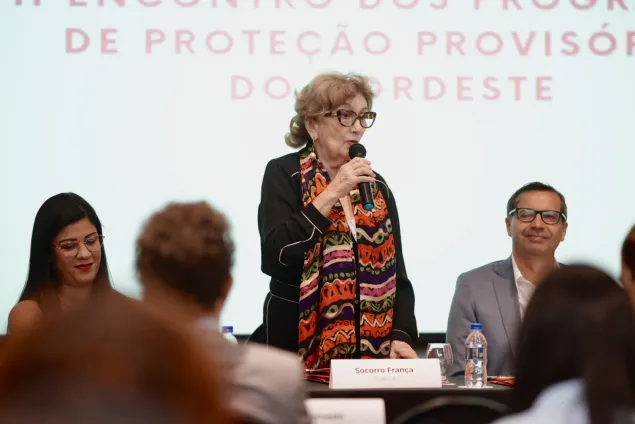
Socorro França speaks at the opening session.
State deputy Renato Roseno, president of the Comitê de Prevenção e Combate à Violência (Committee to Prevent and Combat Violence, CPCV), highlighted the need to strengthen the protection programmes. He said it was necessary to give law enforcement personnel additional training and to include them in national guidelines, under a protocol specifying how to react to threats. Leandro Bessa, the public defender for the state of Ceará, said that his organization’s concerns included police violence, missing persons and displaced people.
GAJOP executive director Deila Martins pointed out that the violence was changing and worsening, making it necessary to develop techniques or strategies to ensure immediate protection. She said that the north-east region had come up with strategies that could be implemented elsewhere in Brazil.
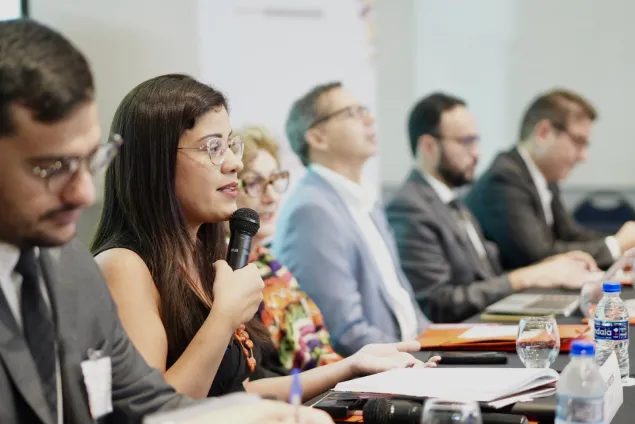
Deila Martins talks about how the violence is changing and becoming more severe.
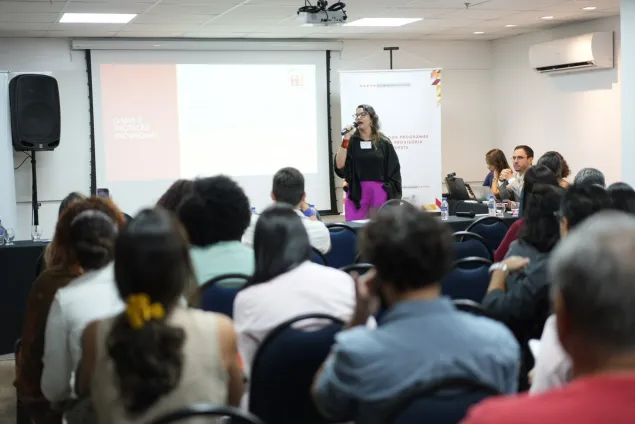
Participants present their provisional protection programmes.
The ICRC in Fortaleza
The ICRC has been helping respond to the effects of armed violence on the people of Ceará since 2018. The organization works with the Ceará authorities and civil society in response to restrictions on access to essential public services, people deprived of their liberty, missing persons and their families, and displaced people.

